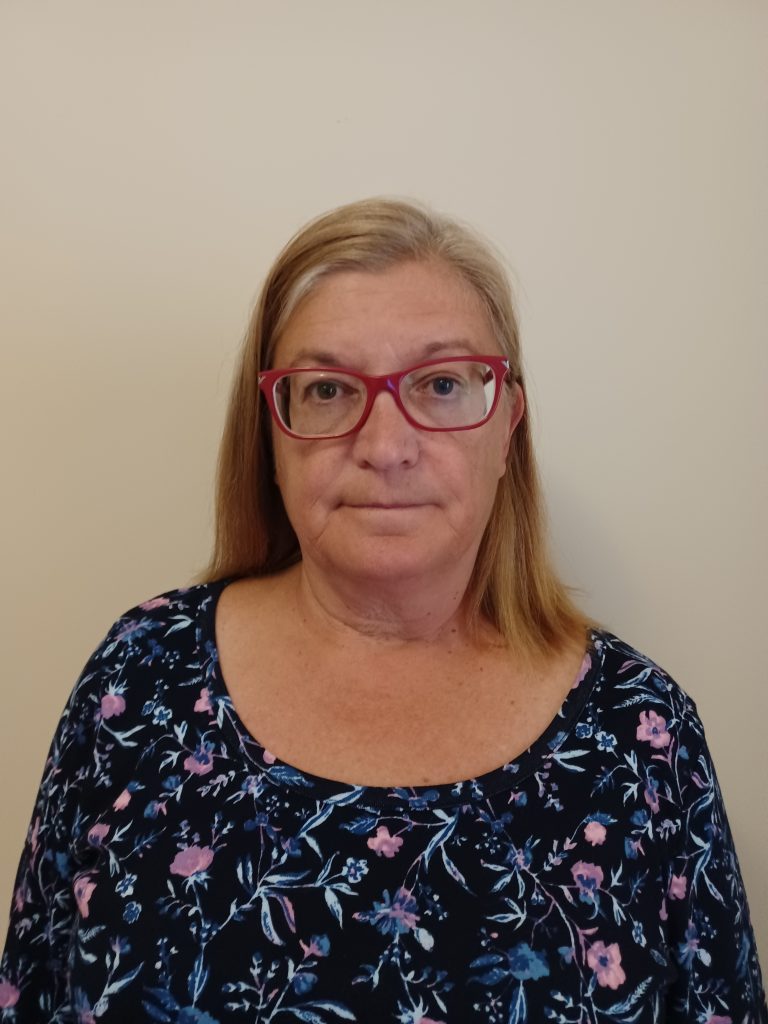
CAPITOL RECAP: State plans early Fed payback while deficit remains
By Capitol News Illinois
SPRINGFIELD – Gov. JB Pritzker and other Democratic leaders announced Thursday, May 20, that they have agreed to a plan to repay the money Illinois borrowed from the Federal Reserve during the COVID-19 pandemic before the end of the next fiscal year.
Illinois borrowed $3.2 billion from the Fed through a program that Congress established under the Coronavirus Aid, Relief and Economic Security, or CARES Act to help states that saw dramatic declines in revenue during the peak of the pandemic. Of that, roughly $2 billion remains outstanding.
That money was to be repaid in three installments by December 2023. But in a news release, Pritzker said the state’s recent economic performance and stronger-than-expected revenue growth will allow it to pay off the loan early, saving the state about $100 million in interest charges.
But even without the debt repayment cost, Illinois faces a number of significant fiscal challenges over the next year.
During a news conference earlier in the day, House Majority Leader Greg Harris, D-Chicago, said the proposed budget as it stands now is about $1.3 billion out of balance and that lawmakers are faced with a choice of spending cuts, revenue enhancements or a combination of both in order to get through the year.
Last week, the Governor’s Office of Management and Budget revised its revenue estimates for the current fiscal year upwards by nearly $1.5 billion and by $842 million for the upcoming fiscal year.
Pritzker attributed that improved performance to state programs during the pandemic that targeted sectors of the economy such as small businesses and child care providers, as well as effective cash management by Comptroller Susana Mendoza.
The statement from the governor’s office noted that final income tax payments received earlier this week, along with stronger year-to-date receipts in the state’s main revenue sources – individual and corporate income taxes and sales taxes – will allow the remainder of the repayment to occur beginning in the next several months.
Earlier, officials had hoped to use a portion of the $8.1 billion in fiscal relief Illinois will receive through the recently-passed American Rescue Plan to pay off the loans, but the Treasury Department has issued interim rules that prohibit the use of those funds to pay off state debt.
* * *
MENSTRUAL PRODUCTS IN SCHOOLS: A bill that would require schools to provide free menstrual hygiene products in all bathrooms for grades 4 through 12 passed the Illinois House and will now be up for consideration in the Senate.
House Bill 156, sponsored by Rep. Barbara Hernandez, D-Aurora, passed on a 68-43 vote Thursday, May 20.
Hernandez said in some cases that there are students who are missing school because they are unable to access menstrual hygiene products or don’t feel comfortable going to a nurse’s office or asking a teacher for a pad or a tampon.
The menstrual hygiene products would be free to the students and be available during the regular school day.
A similar bill, House Bill 3215, was signed into law in 2017. But Hernandez said her bill is necessary because school districts are not enforcing the existing law.
The fiscal note for the 2017 bill stated that this measure would not have a financial impact on the Illinois State Board of Education, but it would instead have a fiscal impact on school districts. The specific amount was not known at the time.
Rep. Avery Bourne, R-Morrisonville, said school districts are already doing this and the bill “takes away local control” and is “a blanket mandate that will not only be expensive, but reach beyond what the amendment even intends to do.”
Rep. Andrew Chesney, R-Freeport, said he was mostly concerned about the language requiring the products to be available in all bathrooms, which would include male bathrooms.
Hernandez said this is necessary so that male friends can help out their classmates in emergency situations. Rep. Kathleen Willis, D-Addison, added that this is also a more inclusive approach to protect transgender youth.
* * *
MARIJUANA LICENSING: A bill aimed at allowing more people from distressed communities to get into the lucrative recreational marijuana business is on its way to the House floor as lawmakers head into the final days of the spring 2021 session.
House Bill 1443 is a follow-up to the landmark bill that passed in 2019 legalizing and regulating the sale and use of recreational marijuana. Under that law, dispensaries that were already licensed to sell medical marijuana immediately became eligible to apply for recreational-use licenses while a number of other licenses were set aside for so-called “social equity” applicants.
Those were to be businesses run by people from communities that were disproportionately affected by over-policing and criminal drug prosecutions during the “war on drugs,” as well as individuals and family members of people who had previously been prosecuted for marijuana violations.
The first 75 social equity licenses were supposed to go out last year through a lottery system, but that was put on hold when, out of more than 900 applications filed, only 21 received perfect scores making them eligible to enter the lottery.
Since then, the Illinois Department of Financial and Professional Regulation has given those who didn’t make the cut a chance to amend their applications, and it plans to go through a second scoring process before determining which ones will qualify for the lottery.
The proposal calls for establishing two more lotteries in which a total of 110 dispensary licenses will be available.
One of those would be for applicants who received a score of 85 percent or better on their initial application and did not receive a license in the initial lottery; the other would be specifically for applicants with similar scores who have personally been convicted of a marijuana offense or has a family member with such a conviction.
The bill passed out of the House Executive Committee by a vote of 15-0 on Thursday, May 20. It now heads to the full House for consideration.
* * *
AUDITOR GENERAL CAMPAIGN VIOLATIONS: The campaign committee of former state Rep. Frank Mautino, who is now the Illinois auditor general, violated state law when it spent campaign funds on gas and car repairs for personal vehicles, the Illinois Supreme Court decided Thursday, May 20.
But the court did not find Mautino’s committee violated a separate section of state election law that prohibits spending more than fair market value for goods and services.
However, since Mautino’s committee was dissolved in 2015, any fines levied against it would likely not be collected, a spokesperson for the Illinois State Board of Elections said Thursday.
The case against Mautino’s campaign committee dates back to early 2016 when Mautino resigned from his position as a state representative, after 25 years in the General Assembly, and was appointed auditor general.
* * *
ROAD IMPROVEMENT PLAN: Gov. JB Pritzker announced Wednesday, May 19, the release of a six-year, $20.7 billion construction plan to improve roads and bridges throughout the state, an annual process which the Illinois Department of Transportation oversees to target infrastructure spending.
The Highway Improvement Program, funded through the Rebuild Illinois capital infrastructure plan passed in 2019, will reconstruct nearly 2,779 miles more miles of roads and 7.9 million square feet of bridge deck between fiscal year 2022 and 2027, according to the governor’s office.
The Highway Improvement Program is a part of the larger $45 billion Rebuild Illinois infrastructure plan, which was a bipartisan effort to revitalize local economies that passed in the governor’s first year. The plan invests in roads, bridges, railroads, universities, early childhood centers and state facilities.
The projects outlined in the new multi-year plan will continue to create and support hundreds of thousands of jobs, Pritzker said.
Overall, the Rebuild Illinois capital plan is expected to support around 540,000 thousand jobs over its lifespan. But there are currently no estimates available on how many jobs the specific projects through the Highway Improvement Program will create.
About $33.2 billion was earmarked in the initial release of the capital plan for the transportation sector, with $25.3 billion specifically for roads and bridges. Most of that funding came from an increase to the state’s motor fuel tax, which was indexed for inflation each year, and increases to state licensing fees.
The Illinois Department of Transportation said the plan includes $5.79 billion for highway reconstruction and preservation, $4.82 billion for bridge improvements, $2.59 billion for strategic expansion, $1.43 billion for system support such as engineering and land acquisition, and $1.21 billion for safety and system modernizations.
A full list of the projects can be found on IDOT’s website.
* * *
IN-PERSON LEARNING: The Illinois State Board of Education unanimously passed a resolution Wednesday, May 19, calling on all public schools to return to in-person learning during the upcoming school year.
The resolution doesn’t institute any mandates or requirements for Illinois schools to follow, but shows unified support from ISBE for an upcoming decision by State Superintendent Carmen Ayala.
In a weekly blog posted to the ISBE website, Ayala said she plans to make the mandate official “at the conclusion of the current academic year,” meaning the change will not take effect until next school year.
Once Ayala issues an official declaration, all public schools will be required to return to in-person learning for the 2021-2022 academic year with no exceptions. Only students who are both unvaccinated and under a quarantine order from the Illinois Department of Health will be eligible to continue remote learning.
A spokeswoman for ISBE said they expect the bulk of the population eligible for remote learning at the start of the school year to be under 12 years old.
“We encourage families to use the summer months to ensure that eligible children get vaccinated,” she said. “The vaccines are safe, effective, and proven to protect you from getting sick.”
Students who do not qualify for remote learning may seek home or hospital instruction if a doctor determines they will miss at least 10 days of school due to a medical condition.
* * *
STATUE TASK FORCE: A state House task force continued its discussion on Wednesday, May 19, about reevaluating controversial statues and whether new monuments commemorating minorities should be added to the state Capitol grounds.
The hearing Wednesday is the second meeting of the bipartisan Statue and Monument Review Task Force, which was formed by Speaker Emanuel “Chris” Welch last month. The purpose of the task force is to conduct a review of monuments on state property and proposals for new monuments or statues.
Adam Green, an associate history professor at the University of Chicago, said statues, monuments and memorials and the naming practices for buildings, parks, streets and other components of the built environment play a crucial role in defining communities.
Katherine Poole-Jones, associate art history professor at Southern Illinois University at Edwardsville, said the task force must ask what values they wish to collectively endorse in the public realm.
She said this is especially crucial to think about when discussing the grounds of government buildings, “because, of course, the history of Confederate monuments was putting them up at statehouses as tools of intimidation.”
Last year, former House Speaker Michael Madigan requested that the board of the Office of the Architect of the Capitol remove monuments of Stephen Douglas and Pierre Menard from Capitol grounds.
Rep. Mary Flowers, a Chicago Democrat who chairs the committee, suggested the task force consider adding monuments commemorating former President Barack Obama, as well as Harold Washington, Chicago’s first black mayor; Ida B. Wells, a co-founder of the NAACP; and Rudy Lozano, a labor activist from Chicago’s Little Village neighborhood.
But Rachel Leibowitz, an assistant professor at the State University of New York, cautioned the task force against adding too many new figurative monuments and memorials to the Capitol grounds.
She also raised the possibility of constructing abstract memorials, such as the Vietnam Memorial in the Washington, D.C.
* * *
MEDIA LITERACY: All high schools in Illinois would be required to offer instruction in how to understand and evaluate news and social media as part of their computer literacy courses under a bill that advanced out of a Senate committee Tuesday, May 18.
Sen. Karina Villa, D-West Chicago, argued in the Senate Education Committee that the bill is needed because vast changes in the media landscape that have occurred in recent years.
“In the digital age, the internet has become the primary public square,” she said. “Young people consume, create and share news throughout digital media. They debate and discuss social issues, politics and civic issues in online spaces. They’re also vulnerable to persecution and misinformation.”
During the lame duck session in January, lawmakers passed an education reform bill backed by the Illinois Legislative Black Caucus that was aimed at improving racial and ethnic equity in education. That bill, which Gov. JB Pritzker signed into law in March, included a requirement that all schools provide “developmentally appropriate” computer literacy instruction.
Villa said that House Bill 234 would add to that requirement by including “media literacy” within the definition of computer literacy, beginning in the 2022-2023 school year.
According to the bill, that would include instruction on accessing information across various platforms; analyzing and evaluating media messages; creating their own media messages; and social responsibility and civics.
But Sen. Terri Bryant, R-Murphysboro, questioned how objective schools could be in teaching students how to evaluate news stories by separating factual news from “fake news.”
Villa replied that teachers are trained in how to instruct students in media usage and that the difference between fake news and real news is the same as the difference between fiction and nonfiction.
Villa said the instruction would just be designed to teach students how to verify information in a news story in order to evaluate for themselves what is accurate and what is not.
The bill passed out of the committee by a vote of 7-2 and now heads to the floor of the Senate. It previously passed the House, 68-44, on March 20.
* * *
SECLUSION AND RESTRAINT: The Senate Education Committee advanced a bill Tuesday, May 18, that would require the Illinois State Board of Education to adopt rules to greatly curtail the use of time outs, isolated time outs and physical restraint in all public schools and nonpublic special education facilities.
That is an issue that lawmakers tried to tackle during the lame duck session in January when a bill passed unanimously out of the Senate but stalled in the House.
The State Board of Education adopted rules in 2020 that were intended to phase out the use of seclusion and prone, or face-down, restraints by July of this year. House Bill 219, which passed out of the House, 113-0, on March 22, would actually give the state board another two full years, until the 2023-2024 school year, to phase out those practices.
Sen. Ann Gillespie, D-Arlington Heights, the lead Senate sponsor of the bill, acknowledged that the extension has created some opposition to the bill. She said she plans to amend the bill further before it goes to a final vote, including shortening the phase-in period so it would take effect in the 2022-2023 school year.
The use of isolation and restraint in school settings has long been criticized by advocates for students with disabilities.
Cheryl Jansen, public policy director for the disability rights organization Equip for Equality, said the practice of physical restraints in particular has been shown to be dangerous, and even lethal in some situations. She said restraint is used disproportionately on students with disabilities, and a disproportionate share of those students were Black or Latino.
The bill passed out of the committee on a vote of 13-1, with Gillespie’s assurance that she would bring it back to the committee after amending it on the Senate floor.
* * *
COAL ASH RULES: After years of work by environmental activists to push action on the issue, the Illinois Pollution Control Board has issued findings and recommendations related to the regulation of coal ash storage – an action advocates call “the first of its kind” in the state.
Coal ash, according to the Environmental Protection Agency, is the collection of byproducts of coal-burning power plants, which includes fly ash, bottom ash, boiler slag and various other residues.
The material, also referred to as coal combustion residual, or CCR, is typically kept in storage ponds located on the grounds near coal-burning power plants, known as surface impoundments.
The impoundments typically contain high amounts of hazardous material, including mercury, cadmium and arsenic, which can pollute and contaminate surrounding bodies of water and drinking water supplies.
While some disposal site operators have taken proper steps to mitigate pollution from the storage ponds, the sites have remained largely unregulated until recently, in some cases lying totally exposed to the elements.
In accordance with the state’s 2019 Coal Ash Pollution Prevention Act, the Pollution Control Board issued new rules and findings on April 15, finalizing the rules by which coal plant owners and operators must abide.
According to a statement issued by the Illinois EPA, the rules “provide for the protection of public health and the environment.”
The rules require coal ash disposal site owners or operators to move coal ash to landfills or disposal sites with protective lining and groundwater monitoring systems. Owners and operators are responsible for the full cost of transporting all material or retrofitting coal ash disposal sites to come into compliance.
Under the 2019 law, owners or operators of coal ash surface impoundments were required to pay initial fees of $50,000 for each closed coal ash plant and $75,000 for those that have not yet been closed. The bill also requires fees of $25,000 annually for each site that has not completed closure, and $15,000 for each closed site which has not completed adequate post-closure care. Those fees go to the state’s environmental protection and inspection fund.
Additionally, all coal ash storage sites not owned by a municipality are responsible for providing financial assurance in the form of bonds, a trust fund, or letter of credit ensuring the remediation can be paid for in the event the responsible company runs out of funds or abandons the site.
Under the new rules, a pair of permit processes are established by IEPA to guide proper storage and cleanup efforts.
An operating permit would pertain to active coal ash disposal sites and would require companies to meet obligations for maintenance, dust control and pollution mitigation. A closure construction permit would be issued to coal ash sites which choose to close or that are forced to close due to a violation.
The rules also require the owners or operators of the site to publicly post all permits and documents related to projects and allow for public review and feedback on the storage or cleanup process.
* * *
ETHICS PROPOSALS: Lawmakers are once again discussing ethics at the Capitol. Senate Bill 4, which moved out of the Senate Ethics Committee on April 21, is a package written largely by legislative Democrats that would enact new rules governing lobbying, campaign fundraising, who can serve on political committees and the operations of the General Assembly.
Specifically, it would prohibit elected officials, including members of the General Assembly, from lobbying other units of government on behalf of other entities.
It would also prohibit lawmakers and executive branch officials from going to work as a lobbyist within six months after leaving office, although it would allow lawmakers to work as lobbyists once the biennial session to which they were elected is over. The same prohibition would apply to lawmakers who are hired to work as “consultants” for businesses or groups that lobby the legislature.
It would also prohibit both virtual and in-person fundraisers in Sangamon County on days when the General Assembly is in session, as well as the days before and after session days. Current law only bans in-person fundraisers on session days.
Salaried appointees of the governor and other executive branch officials who are subject to Senate confirmation would be prohibited from serving as an officer of a candidate committee or being the designated beneficiary of such a committee.
Finally, the bill would establish the office of legislative inspector general as a full-time employee, create a uniform statement of economic interest form that would also apply to judicial candidates and prorate the monthly salary of lawmakers who leave office before the end of their term.
Senate Bill 1350, backed by all Senate Republicans, contains a number of other provisions giving local state’s attorneys and the attorney general’s office more authority to investigate and prosecute cases of public corruption.
Those include giving the attorney general authority to convene statewide grand juries to investigate corruption; giving local prosecutors authority, with court approval, to use wiretaps in corruption investigations; and giving the legislative inspector general independent authority to investigate corruption cases and issue subpoenas. It would also impose a hard one-year revolving door prohibition on lawmakers becoming lobbyists.
Senate Bill 4 is currently sitting on the Senate calendar awaiting final action. The deadline for final action is listed as Friday, May 21, although that deadline could be extended. The Republican package, which was introduced Thursday, May 13, has not yet been assigned to a substantive committee.
* * *
NEW MASK GUIDANCE: Gov. JB Pritzker issued a new executive order Monday, May 17, that allows fully vaccinated residents to not wear masks inside and outdoors.
The updated rules for mask wearing are nearly identical to the U.S. Centers for Disease Control and Prevention’s updated guidance, which was released Thursday.
The CDC guidance permits fully vaccinated people to not wear masks or physically distance in any non-health care setting, “except where required by federal, state, local, tribal, or territorial laws, rules, and regulations, including local business and workplace guidance.”
The CDC still recommends that fully vaccinated people wear masks in health care settings, as well as on planes, trains and other forms of public transportation.
The new executive order requires residents follow this recommendation regarding planes and public transportation. It also permits any entity to continue stricter masking requirements than are required by the state.
“(B)usinesses are encouraged to prioritize the health and safety of their workers and customers, and may continue to require face coverings and social distancing, even for those who are fully vaccinated,” the order states.
Pritzker said it will be up to private businesses to decide if they want to require patrons to provide proof of vaccinations.
“We are relying on people to do the right thing,” he said. “We are relying upon people to recognize that they don’t want to go infect other unvaccinated people and they don’t themselves want to get sick and so it’s important for people to protect themselves and I think there’s real motivation for people to go get that. We’re not going to stop people and, you know, start checking a vaccine passport as part of some state mandate.”
The mask mandate in Illinois took effect last May when Pritzker issued an executive order requiring anyone older than 2 years of age “to cover their nose and mouth with a face-covering when in a public place and unable to maintain a six-foot social distance.”
* * *
RENT ASSISTANCE Gov. JB Pritzker announced Monday, May 17, the state will plan to “phase out” its moratorium on pandemic-related evictions by August and launched a new program to provide assistance to renters and homeowners financially impacted by COVID-19.
The announcement regarding the planned end of the eviction moratorium came as Pritzker signed House Bill 2877, a bill that expands the Illinois Rental Payment Program to a total of $1.5 billion, and requires the sealing of eviction records filed due to financial hardship through August of 2022.
Funding for the program, which has been made available by the federal government, will be administered through the Illinois Housing Development Authority.
The assistance is nearly four times the amount offered under the previous assistance program, which distributed more than $280 million.
Through the bill’s signing, eligible tenants and landlords can apply to receive a one-time grant totaling up to $25,000 to cover a maximum of 15 months of missed rent from June 2020 through August 2021, or until funds are exhausted. Funds will be distributed directly to housing providers and landlords.
Officials expect that funding to provide additional assistance to over 120,000 households statewide.
Eligible tenants and landlords can apply to receive assistance at illinoishousinghelp.org.
According to information from the Illinois Department of Human Services, an estimated 60,000 Illinois households are vulnerable for eviction in 2021 as a result of the pandemic.
Pritzker has issued monthly executive orders prohibiting evictions due to pandemic-related financial hardship since March of 2020.
According to Housing Action Illinois, the bill requires the sealing of all eviction records between March 2020 and March 2022 upon filing, with limited unsealing allowed if a judgment is entered and the case is unrelated to nonpayment of rent.
The bill also requires the sealing of older eviction records if the court finds that doing so is in the interests of justice, the case is dismissed, the tenant did not breach the lease, or the parties agree to seal the record. The provision sunsets on July 31, 2022.
Capitol News Illinois is a nonprofit, nonpartisan news service covering state government and distributed to more than 400 newspapers statewide. It is funded primarily by the Illinois Press Foundation and the Robert R. McCormick Foundation.
Local News
Sorry, we couldn't find any posts. Please try a different search.
Neighbors

Marist celebrates cultural diversity
Spread the loveBy Kelly White Marist High School appreciates the wide array of culture that walks its campus hallways on a daily basis. In order to celebrate, the high school, 4200 W. 115th St., Chicago, hosted its second annual Celebration of Culture on March 14. During the free event, students, faculty and staff represented their…

Palos Heights Knights of Columbus donate to GiGi’s Playhouse
Spread the loveGrand Knight John Laskey and Past Grand Knight Brian Mellenthin of St. Theodore Guerin Knights of Columbus Council 14057 presented a check for $1,500 to GiGi’s Playhouse of Tinley Park, one of several donations to local groups resulting from the Knights of Columbus’ Fall Tootsie Roll Drive. One of the most recognizable activities…

Worth police join task force to combat auto thefts
Spread the loveBy Joe Boyle An agreement has been reached between the villages of Worth and Thornton regarding participation in the Illinois Statewide Auto Theft Task Force. Worth Police Chief Tim Denton said the approval of the memorandum to participate in the task force is necessary. “It’s no secret that there has been an increase…

A simple idea for Earth Day
Spread the love. By Mary Stanek Your correspondent in Archer Heights and West Elsdon 3808 W. 57th Place • (773) 517-7796 . Moving right along through April, as the days get longer and nicer, time will start to go by faster. We have Earth Day on April 22 and the start of Passover at sunset.…

Bingo at St. Clare was something to yell about
Spread the love. Kathy Headley Your correspondent in Chicago Lawn and Marquette Manor 6610 S. Francisco • (773) 776-7778 . Recently I mentioned a bingo fundraiser the Augustinian Young Adults of St. Rita of Cascia Parish were holding. This was their first attempt at a bingo and they put on a really nice event. Held…

One thing is certain: life goes on
Spread the love. Peggy Zabicki Your correspondent in West Lawn 3633 W. 60th Place • (773) 504-9327 . I get a lot of calls from residents who are discouraged about our neighborhood. There are so many car accidents, shootings and violent crimes being committed in West Lawn and surrounding areas. It certainly is challenging to stay hopeful and positive. Here is a paragraph…

Biz groups battle over names, logos
Spread the love. UBAM, MCC trade barbs . By Dermot Connolly and Tim Hadac The leader of one Midway-area business association is accusing the other of bad faith, and the leader of the other is scratching her head over the dustup. United Business Association of Midway Executive Director Anita Cummings recently claimed that a rival…

Chicago Lawn native’s book is ‘off the hook’
Spread the love. Longtime journalist shares humor columns . By Tim Hadac Nancy (Emerson) Besonen has made a career as a news reporter and humor columnist for a weekly paper in Michigan’s Upper Peninsula. But her roots are in Chicago Lawn, and it showed during a recent conversation. Like most true Southwest Siders, she didn’t…

Softball | Oak Lawn’s Kasey Jackson fans 5 in loss to Shepard
Spread the loveBy Xavier Sanchez Correspondent Oak Lawn entered its South Suburban Conference matchup with Shepard having won six of its last seven games. The Astros — even hotter with seven straight victories after beginning the season with three consecutive losses — cooled off the Spartans (8-5, 4-2 SSC) for a day, winning 3-0 behind…






